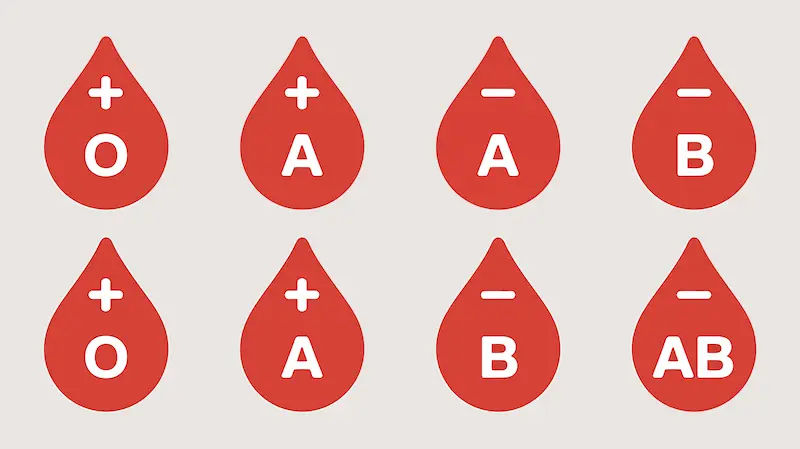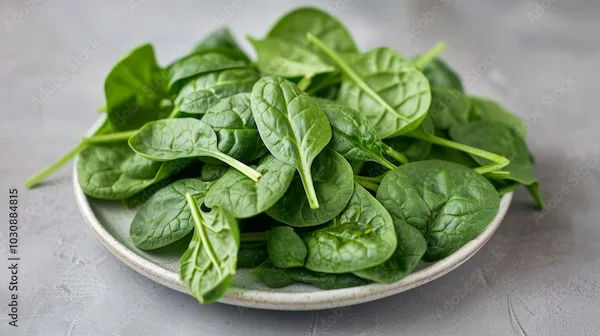How To Reduce Haemoglobin Naturally?
Learn how to reduce haemoglobin levels naturally with dietary changes, hydration, and lifestyle adjustments. Discover effective foods, remedies, and tips for maintaining balanced blood health.

Written by Dr.Sonia Bhatt
Last updated on 13th Jan, 2026
Understanding Haemoglobin
High haemoglobin levels can result from various factors, including medical conditions and lifestyle choices. While haemoglobin is essential for transporting oxygen in the blood, excessively high levels can increase the risk of complications such as blood clots and cardiovascular issues. Although medical intervention may be necessary in some cases, several natural methods can help regulate haemoglobin levels safely. This article explores effective dietary, lifestyle, and hydration strategies to lower haemoglobin naturally and maintain overall health.
1. What is Haemoglobin?
Haemoglobin is an iron-rich protein found in red blood cells, responsible for transporting oxygen from the lungs to the body’s organs and tissues. It also plays a vital role in removing excess carbon dioxide from the body, maintaining overall physiological balance.
2. Normal Vs. High Haemoglobin Levels
Haemoglobin is a crucial protein in red blood cells responsible for transporting oxygen throughout the body. The normal haemoglobin range varies based on age and gender:
Newborns: 14 to 24 g/dL
Infants: 9.5 to 13 g/dL
Adult Females: 12.1 to 15.1 g/dL
Adult Males: 13.8 to 17.2 g/dL
When haemoglobin levels exceed these ranges, the blood becomes thicker, increasing the risk of complications such as blood clots, stroke, and heart disease. High haemoglobin can result from underlying medical conditions, lifestyle factors, or environmental influences such as smoking, dehydration, and living at high altitudes. Monitoring and managing haemoglobin levels are essential for overall health and well-being.
Causes of Elevated Haemoglobin
Elevated haemoglobin levels can result from various medical conditions, lifestyle choices, and environmental factors. Understanding these causes is essential for effective management and prevention.
1. Common Medical Conditions
Certain health conditions can lead to high haemoglobin levels, including:
Congenital heart disease: A birth defect affecting heart structure and blood flow.
Chronic obstructive pulmonary disease (COPD): A lung disease that reduces oxygen levels, triggering excess red blood cell production.
Emphysema: A lung condition that damages air sacs, leading to lower oxygen levels and increased haemoglobin.
Kidney or liver cancer: Certain cancers can stimulate excess red blood cell production.
Polycythaemia vera: A blood cancer that causes the bone marrow to produce too many red blood cells.
Pulmonary fibrosis: A lung disease causing scarring, reducing oxygen supply and leading to high haemoglobin.
2. Lifestyle Factors Contributing to High Haemoglobin
Several lifestyle choices can also cause elevated haemoglobin, such as:
Dehydration: Reduces plasma volume, making haemoglobin levels appear higher.
High-altitude living: Triggers increased red blood cell production due to lower oxygen levels.
Smoking: Reduces oxygen supply, prompting excess haemoglobin production.
Performance-enhancing drugs: Substances like anabolic steroids and erythropoietin (EPO) can artificially elevate haemoglobin levels.
Dietary Approaches to Lower Haemoglobin
A well-balanced diet plays a crucial role in managing haemoglobin levels. Making strategic dietary choices can help reduce excess haemoglobin and support overall health.
1. Foods to Consume
A well-balanced diet can help regulate haemoglobin. Some beneficial options include:
Whole grains
Fresh fruits and vegetables
Low-iron foods like dairy products
Vitamin C-rich foods (oranges, bell peppers) to aid iron absorption regulation
2. Foods to Avoid
Limiting iron intake can help lower haemoglobin. Foods to avoid include:
Red meat
Dark leafy greens (spinach, kale)
Dried fruits (raisins, apricots)
Legumes (lentils, beans)
Iron-fortified cereals
Nuts and seeds
Importance of Hydration
Staying well-hydrated is essential for maintaining healthy haemoglobin levels, as proper hydration helps regulate blood thickness and supports overall circulation.
1. Role of Water Intake in Haemoglobin Reduction
Maintaining adequate hydration is crucial for regulating haemoglobin levels. Proper water intake helps dilute the blood, ensuring normal viscosity and plasma volume, which can prevent an artificial rise in haemoglobin concentration. Dehydration, on the other hand, can cause haemoglobin levels to appear higher than they actually are, leading to potential health concerns.
2. Best Practices For Staying Hydrated
Staying hydrated requires more than just drinking water; it involves adopting consistent habits that support overall fluid balance:
Drink at least 2–3 litres of water daily to support circulation and maintain optimal blood viscosity.
Limit caffeine and alcohol intake, as these substances can act as diuretics, leading to fluid loss and potential dehydration.
Incorporate hydrating foods like cucumbers, watermelon, oranges, and leafy greens, which provide additional water content and essential electrolytes to support hydration.
Lifestyle Modifications
Making specific lifestyle modifications can help regulate haemoglobin levels and promote overall well-being. Incorporating healthy habits such as regular exercise, stress management, and avoiding harmful substances can play a crucial role in maintaining balanced haemoglobin levels.
1. Exercise Routines to Consider
Regular physical activity can help balance haemoglobin levels. Recommended exercises include:
Cardiovascular workouts (walking, cycling, swimming)
Strength training in moderation
Breathing exercises for improved oxygenation
2. Importance of Stress Management
Chronic stress can impact blood production. Effective stress management techniques include:
Meditation and mindfulness
Yoga and deep breathing exercises
Adequate sleep and relaxation
Herbal and Natural Remedies
Incorporating herbal and natural remedies into your routine may help regulate haemoglobin levels naturally. Certain herbs and supplements are known for their blood-purifying and iron-regulating properties, which can be beneficial when used appropriately.
1. Helpful Herbs and Supplements
Some herbs and supplements may assist in maintaining balanced haemoglobin levels:
Turmeric: Known for its anti-inflammatory properties, turmeric supports overall blood health and may help prevent excessive red blood cell production.
Nettle Tea: This herbal tea is believed to help balance iron levels, which can indirectly support haemoglobin regulation.
Coriander and Fenugreek Seeds: These seeds have detoxifying properties that may aid in cleansing the blood and maintaining healthy haemoglobin levels.
2. Monitoring and Safety Considerations
While herbal remedies can be beneficial, it is essential to use them cautiously. Some herbs may interact with medications or cause unintended side effects. Always consult a healthcare provider before incorporating herbal supplements into your routine, especially if you have underlying health conditions or are taking prescribed medications.
Consult Top General Physicians
Monitoring Haemoglobin Levels
Regular monitoring of haemoglobin levels is essential for maintaining overall health and detecting potential imbalances. Understanding when to check haemoglobin and how to interpret test results can help in taking timely action if levels are too high.
1. When to Check Haemoglobin Levels?
It is important to test haemoglobin levels in the following situations:
Routine Health Check-ups: Regular blood tests can help track haemoglobin levels and detect any abnormalities early.
Experiencing Symptoms: If you experience dizziness, excessive sweating, fatigue, headaches, or unexplained weight loss, a haemoglobin test may help identify the cause.
Diagnosed with Blood-related Conditions: If you have conditions affecting blood production, such as polycythaemia vera, chronic lung disease, or kidney disorders, frequent monitoring is necessary to manage haemoglobin levels effectively.
2. How to Interpret Results?
A haemoglobin test measures the concentration of haemoglobin in the blood and determines whether it falls within the normal range for your age and gender.
Normal Levels: If your haemoglobin levels are within the expected range, no immediate action is required, but regular monitoring is still advisable.
Elevated Levels: High haemoglobin levels may indicate dehydration, chronic disease, or other underlying health concerns. Further tests, such as a complete blood count (CBC) or additional medical evaluations, may be required to identify the cause.
Next Steps: If results show an imbalance, lifestyle modifications, dietary adjustments, or medical treatments may be recommended to restore optimal haemoglobin levels.
Potential Risks and When to Seek Help
While high haemoglobin levels may not always cause immediate concerns, they can increase the risk of complications if left unchecked. Recognising warning signs and seeking medical advice when necessary can help prevent serious health issues.
1. Identifying Warning Signs
Elevated haemoglobin levels do not always present noticeable symptoms, but some potential indicators include:
Headaches: Persistent or frequent headaches may signal increased blood viscosity.
Fatigue: Unexplained tiredness or weakness could indicate that the blood is not circulating efficiently.
Easy Bruising: An increased tendency to bruise may be a sign of abnormal blood consistency.
Shortness of Breath: Difficulty breathing or feeling breathless may be due to reduced oxygen transport in the body.
2. Consulting with Healthcare Professionals
If haemoglobin levels remain consistently high, consulting a healthcare professional is crucial for proper diagnosis and management.
Medical Assessment: A doctor may conduct further tests to determine the underlying cause of elevated haemoglobin.
Recommended Treatments: Depending on the cause, treatment options may include lifestyle modifications, increased hydration, dietary changes, or therapeutic blood donation.
Medical Interventions: In some cases, medication or specialised treatments may be necessary to regulate haemoglobin levels effectively.
Conclusion
Managing haemoglobin levels naturally requires a combination of dietary adjustments, hydration, lifestyle changes, and regular monitoring. By making informed choices and seeking medical advice when needed, you can maintain optimal haemoglobin levels and reduce health risks associated with elevated levels.
Consult Top General Physicians
Consult Top General Physicians

Dr. Rajib Ghose
General Physician/ Internal Medicine Specialist
25 Years • MBBS
East Midnapore
VIVEKANANDA SEBA SADAN, East Midnapore

Dr. Prof. Ramulu
General Physician/ Internal Medicine Specialist
47 Years • MBBS, MD
Secunderabad
Apollo Hospitals Secunderabad, Secunderabad

Dr. Indrajit Das
General Physician/ Internal Medicine Specialist
4 Years • "MD (Internal medicine) : Gauhati Medical College and Hospital, Guwahati (2018-2021) MD (Pathology) : Gauhati Medical College and Hospital, Guwahati (2012-2015) MBBS (Bachelor of Medicine, Bachelor of Surgery) : Silchar Medical College, Assam (2003-2008) "
Guwahati
Apollo Excelcare Hospital, Guwahati

Dr. Hariprasath J
General Physician/ Internal Medicine Specialist
19 Years • MD (Gen Med), FCCP, Dip (Diabetology, UK)
Chennai
Apollo First Med Hospitals P H Road, Chennai
(225+ Patients)

Dr. Senthilmuthu K
General Physician/ Internal Medicine Specialist
6 Years • MBBS, MD
Karur
Apollo Hospitals Allwyn Nagar, Karur
(100+ Patients)
Consult Top General Physicians

Dr. Rajib Ghose
General Physician/ Internal Medicine Specialist
25 Years • MBBS
East Midnapore
VIVEKANANDA SEBA SADAN, East Midnapore

Dr. Prof. Ramulu
General Physician/ Internal Medicine Specialist
47 Years • MBBS, MD
Secunderabad
Apollo Hospitals Secunderabad, Secunderabad

Dr. Indrajit Das
General Physician/ Internal Medicine Specialist
4 Years • "MD (Internal medicine) : Gauhati Medical College and Hospital, Guwahati (2018-2021) MD (Pathology) : Gauhati Medical College and Hospital, Guwahati (2012-2015) MBBS (Bachelor of Medicine, Bachelor of Surgery) : Silchar Medical College, Assam (2003-2008) "
Guwahati
Apollo Excelcare Hospital, Guwahati

Dr. Hariprasath J
General Physician/ Internal Medicine Specialist
19 Years • MD (Gen Med), FCCP, Dip (Diabetology, UK)
Chennai
Apollo First Med Hospitals P H Road, Chennai
(225+ Patients)

Dr. Senthilmuthu K
General Physician/ Internal Medicine Specialist
6 Years • MBBS, MD
Karur
Apollo Hospitals Allwyn Nagar, Karur
(100+ Patients)




